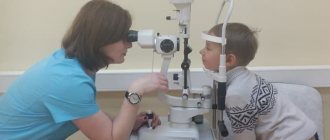All B vitamins are the basis for the harmonious functioning of the central and peripheral nervous systems. In addition, without the participation of these organic compounds, more than one physiological and biochemical process that ensures the vital activity of the human body cannot proceed normally.
This group of vitamins takes an active part in the formation of bone and muscle tissue and regulates general metabolism. It is impossible to maintain health for many years and maintain good health without regular, sufficient intake of thiamine into the body. We also recommend ordering vitamin C to maintain your health at the proper level.
Characteristics of Thiamine
From the point of view of biochemical properties, thiamine is an odorless and colorless crystalline substance. This chemical compound is unstable when exposed to alkalis and high temperatures. In addition to the well-known name thiamine, vitamin B1 is conventionally divided into the following subtypes:
- aneurin.
- Thiamine pyrophosphate.
- thio-vitamin.
Thiamine is most relevant for the human body, since it is in this biochemical structure that this substance takes an active part in many biochemical reactions, acting as a catalyst. When it enters the human body, thiamine is converted in a short period of time into a substance called thiamine pyrophosphate. This form is the most accessible from the point of view of assimilation.
Thiamine is a water-soluble organic compound, so it has no potential for accumulation in body tissues. Excess of this substance is quickly eliminated naturally through the kidneys. If a person's diet does not contain enough vitamin B1, then the person faces negative symptoms of hypovitaminosis.
A small amount of this organic compound is synthesized in the lumen of the large intestine, but this amount is not enough to meet the daily requirement for thiamine. You can find out the price of vitamin C in our pharmacy, as well as the cost of vitamin B1.
Vitamin B1 hypovitaminosis: symptoms and consequences
One of the main consequences of a lack of this substance is a slowdown in biosynthesis, including the synthesis of amino acids necessary for the normal functioning of the body. Because of this, catabolic processes (decomposition processes) prevail over synthesis processes, which directly affects many vital systems. First of all, blood vessels, heart, organs of the digestive tract and nervous system are affected by vitamin B1 hypovitaminosis. Patients experience a sharp decrease in appetite and a decrease in the volume of hydrochloric acid and gastric juice; as a result of decreased tone or even complete intestinal atony, chronic constipation occurs. Skeletal muscles and other muscles without this substance atrophy and largely lose their ability to contract.
Consequences from the cardiovascular system include disturbances in heart rhythm and a decrease in the intensity of heart contractions, and an increase in the size of the right ventricle. With a long course of the disease, the patient may even develop acute heart failure.
Since vitamin B1 is extremely important for the conductivity of nerves and synapses and for the functioning of the nervous system as a whole, its deficiency often develops neurological consequences, namely, a decrease in the degree of sensitivity of peripheral nerves, the occurrence of neuralgia (severe pain along the nerve), deterioration of reflexes and convulsive disorders . As a result of a lack of vitamin, even higher nervous activity can suffer: this manifests itself in the occurrence of hallucinations, pathological fears and impaired intellectual abilities.
In addition to individual symptoms, there is also a specific disease caused by a lack of vitamin B1 and called “beriberi”. This disease is especially common in regions where the diet is based on refined rice, which does not contain B1, such as Africa, Southeast Asia and the Pacific. Beriberi is a severe form of vitamin B1 hypovitaminosis and is rare in developed countries; It mainly affects people suffering from chronic alcoholism. This occurs due to disruption of the diet and digestive system, characteristic of alcoholics.
In addition to the listed symptoms, beriberi can be accompanied by polyneuritis (multiple inflammation of the nerves), leading to paralysis of the muscles of the trunk and limbs, as well as damage to the nerves of the skull. Contractures and atrophy often accompany this disease.
Nerve damage caused by beriberi negatively affects the functioning of the visual organs. The most common symptoms for such patients are abmlyopia (weakening of the eye muscles), paralysis of the muscles surrounding the eye and ensuring its movement, as well as the development of keratitis (inflammation of the cornea). In beriberi, the optic nerve may also be involved, resulting in retrobulbar neuritis.
Daily requirement
At each age, a person needs a different amount of vitamin B1. Only a certain amount of this organic compound can benefit all organs and systems. Depending on age, the daily requirement for thiamine intake is as follows:
- From birth to 3 months - 0.3.
- From 4 months to six months - 0.4.
- From six months to 1 year - 0.5.
- From 1 year to 3 years - 0.8.
- From 3 to 7 years - 0.9.
- From 7 to 11 years - 1.1.
- From 11 to 14 years old - 1.3.
- 14 to 18 years old - 1.3-1.5.
Women during pregnancy are recommended to consume at least 1.7 mg of thiamine per day. For breastfeeding women, this amount is 1.8 mg per day.
These parameters are the standard, but depending on the level of absorption, the presence of concomitant diseases and the general condition of the large intestine, the body’s need for this element may increase.
The effect of vitamin B1 on the body
The value of thiamine for the human body is difficult to overestimate, since this organic compound takes an active part in many physiological and biochemical processes. Vitamin B1 is an important part of carbohydrate metabolism and also reduces the effect of pyruvic and lactic acid on the body. An excess of these acids leads to apathy, decreased performance, nervous exhaustion, and the inability to adequately respond to moderate stressful situations. Also, this substance is regarded as a source of energy and vigor.
Thiamine is widely used in the complex treatment of nervous disorders, depression, stressful situations and overwork. In addition to the listed properties, thiamine is an effective means of preventing gallstones and liver diseases. Also, without a regular supply of the daily norm of this organic compound, the process of producing fatty acids necessary for the breakdown of fats is disrupted.
The beneficial properties of vitamin B1 have been noted in dermatology. This substance has a pronounced regenerating, anti-inflammatory and anti-edematous effect.
How to cope with vitamin B1 hypovitaminosis?
Treatment of hypovitaminosis B1 is based on the inclusion of foods rich in vitamin B1 in the diet, as well as the use of preparations of this vitamin (for example, thiamine bromide). In addition, it will be useful to use a dietary supplement from La Cree - a multivitamin gel for children. Thanks to its balanced natural composition, it strengthens the immune system and has a good effect on the condition of organs suffering from a lack of vitamin B1 - the liver and heart.
Sources:
- Dermatology: an illustrated guide to clinical diagnostics according to Professor A.N. Rodionov. / Rodionov A.N., Zaslavsky D.V., Sydikov A.A. Edited by Professor A.N. Rodionova.M.: Border. 2021.- 944 p.
- Skin diseases of newborns and infants. Guide for doctors / Gorlanov I. A., Leina L. M., Milyavskaya I. R., Zaslavsky D. V. St. Petersburg: Folio. 2021.-208 p.
- Clinical reader on pediatric dermatology: Textbook / Kochergin N. G., Gorlanov I. A., Zaslavsky D. V., Olisova O. Yu., Leina L. M., Milyavskaya I. R. M.: Practical medicine 2021 .-127 p.
Photos of vitamin deficiency
You can see photos of vitamin deficiency on our website.
Photo album on the diseaseManifestations of hypovitaminosis
Insufficient intake of thiamine into the body through food leads to the development of negative symptoms that affect the general condition of a person. The following clinical manifestations indicate a chronic lack of vitamin B1:
- Depressive states, sleep disturbances, deterioration of attention and perception.
- Digestive disorders, chronic constipation, increased appetite, nausea, weight loss.
- Loss of coordination of movement, muscle weakness.
- Shortness of breath with minimal physical activity, unmotivated fatigue.
- Disturbances in the thermoregulation process.
- Reduced pain threshold.
How to determine vitamin B deficiency?
In recent years, there has been a lack of vitamins in a significant part of the population. In particular, deficiency of B vitamins is detected in 30-40% of subjects. Moreover, the deficiency is detected not only in winter and spring, but also in the summer-autumn period1. To establish an accurate diagnosis and determine the degree of vitamin deficiency, it is necessary to conduct a laboratory analysis: a comprehensive chromatographic study of venous blood. However, you can suspect a lack of vitamins in the body on your own. Clinical manifestations of B vitamin deficiency are nonspecific (drowsiness, indigestion, headaches, general weakness, sleep disturbance, dry skin, etc.), and may be signs of other diseases. Now we would like to focus on 2 of the 8 B vitamins: B1 (thiamine) and B6 (pyridoxine). These vitamins are directly involved in metabolic energy processes, hematopoiesis and the functioning of the nervous system2.
Natural Sources of Thiamine
Certain food ingredients contain increased amounts of this organic compound, which makes it possible to effectively combat the manifestations of hypovitaminosis B1 through dietary correction. In order to compensate for the deficiency of vitamin B1 in the body, it is recommended to include in the daily menu such foods as honeysuckle, pine nuts, sunflower seeds, brown rice, sesame seeds, bran, wheat sprouts, pistachio nuts, peas, hazelnuts, buckwheat, corn, Walnut. As for vitamin C, you can also purchase it at a low cost in our pharmacy.
Deficiency Symptoms
At first there are no specific symptoms. Weakness, fatigue, shortness of breath and palpitations during physical activity - all this happens with a host of other diseases. How can we determine what caused these symptoms: a lack of vitamin or something else? First, think about whether there are real reasons for such problems. Secondly, analyze your diet - does it contain enough foods with vitamin B₁ (see table). If there is no reason, and the composition of the products is not ideal, most likely the problem is in the vitamin.
Article on the topic
We treat anemia. Why is vitamin B12 deficiency dangerous?










